8 best protein sources for vegans
Here are 8 best protein sources for vegans - no food choice can stop you in muscle building!
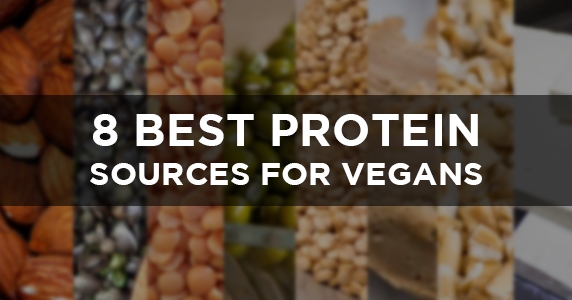
Madbarz brings you 8 best protein sources for vegans - no food choice can stop you in muscle building! We all know the common sources of protein: eggs, fish, meat, and poultry are on a menu of most of the people who are looking to gain muscle. But, what if you don’t eat those products? If you are vegan, want to become one, or you are just looking to eat less meat and animal products, you are in the right place.
1. Steel-Cut Oats
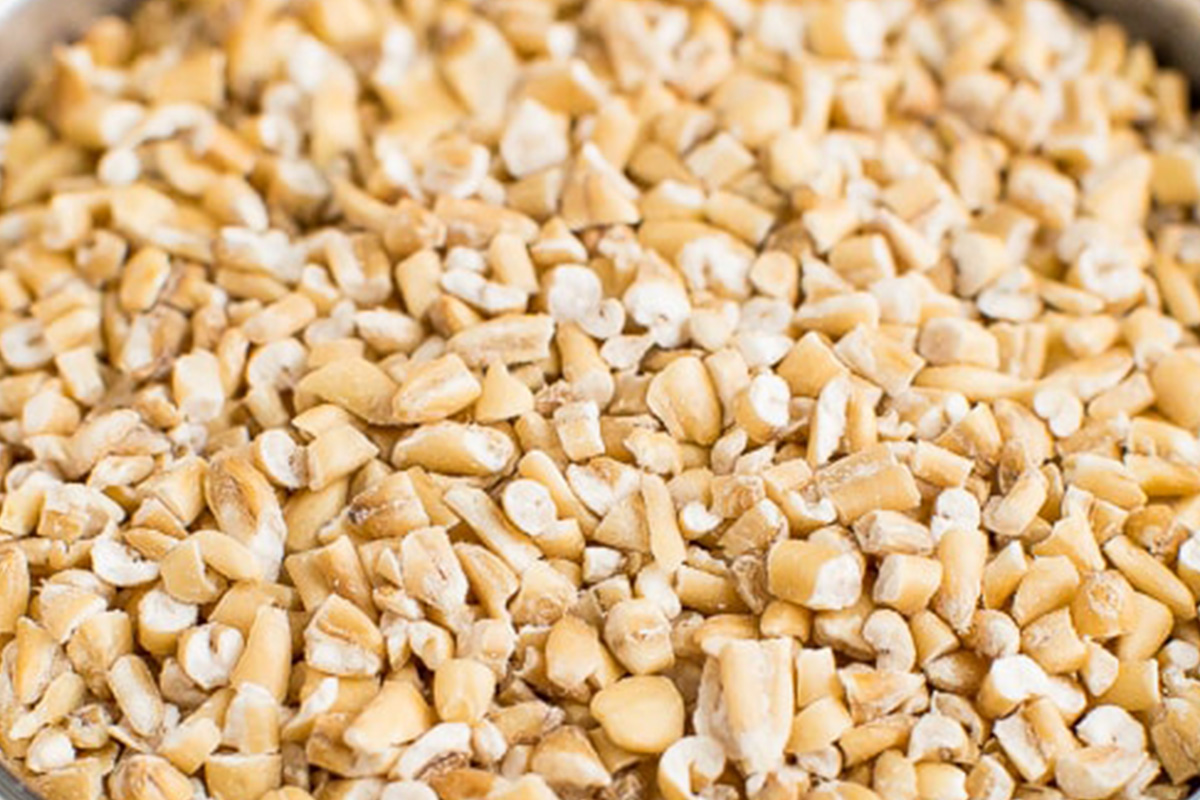
Per 100g (raw):
Kcal: 389
Protein: 17 g
Carbohydrate: 66 g
Dietary fiber: 10 g
Fat: 7 g
When hearing the word ‘’oats’’ most people think of rolled oats or quick oats usually used to make oatmeal. However, rolled oats are processed multiple times and in that process, they lose a lot of nutritional value. The above mentioned nutritional values refer to steel-cut oats.
For comparison, rolled oats contain only 10 g of protein per 100 g, that is a significant difference. Steel-cut oats also contain 10g of dietary fibers that will keep you full for a longer period of time. Also, you can cook them for a couple of days in advance.
For a healthy meal, opt for steel-cut oats cooked in plant milk, topped with some nuts and sliced banana!
2. Quinoa
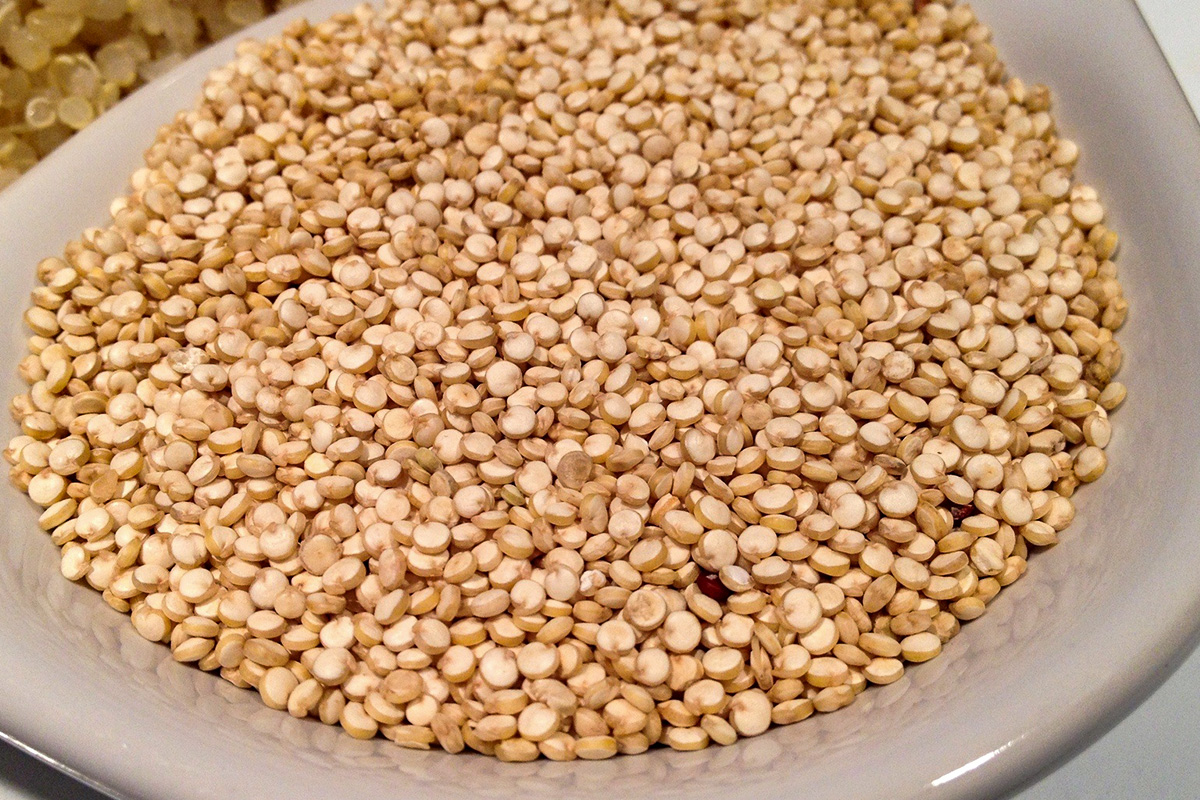
Per 100g (cooked):
Kcal: 120
Protein: 4.4 g
Carbohydrate: 21 g
Dietary fiber: 3 g
Fat: 2 g
Quinoa has a low GI index (around 53), meaning it will not spike your blood sugar and leave you hungry soon after the meal. Also, quinoa is a great source of fiber, containing more fiber than brown rice.
You can use your quinoa for a porridge or use it as a side dish instead of rice. Just keep in mind that, unlike other grains, quinoa should never be soaked. The bitterness in quinoa comes from saponins it contains, and soaking can cause those saponins leaching into seeds, causing more bitterness or even stomachache. Always thoroughly rinse quinoa in cold water before cooking.
3. Lentils
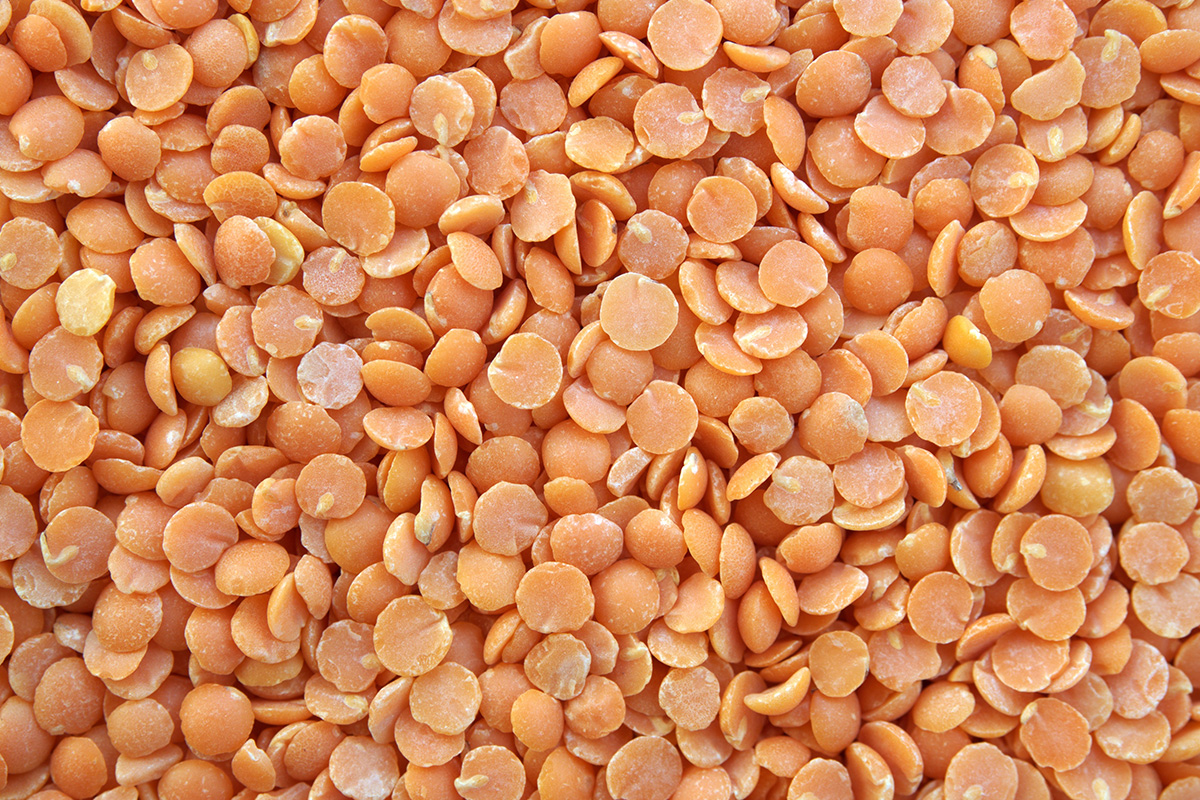
Per 100g (cooked):
Kcal: 116
Protein: 9 g
Carbohydrate: 20 g
Dietary fiber: 8 g
Fat: 0,4 g
Not only they are healthy, full of proteins and dietary fibers, but lentils are also really cheap. Raw lentils are made up of 25% protein, which makes them a great protein source for vegans. They also contain a significant amount of B vitamins, iron, magnesium, potassium and zinc.
To make things even better, lentils taste equally good in cooled and warm, so they can be used in salads, soups, stews, and even dips.
4. Mung beans
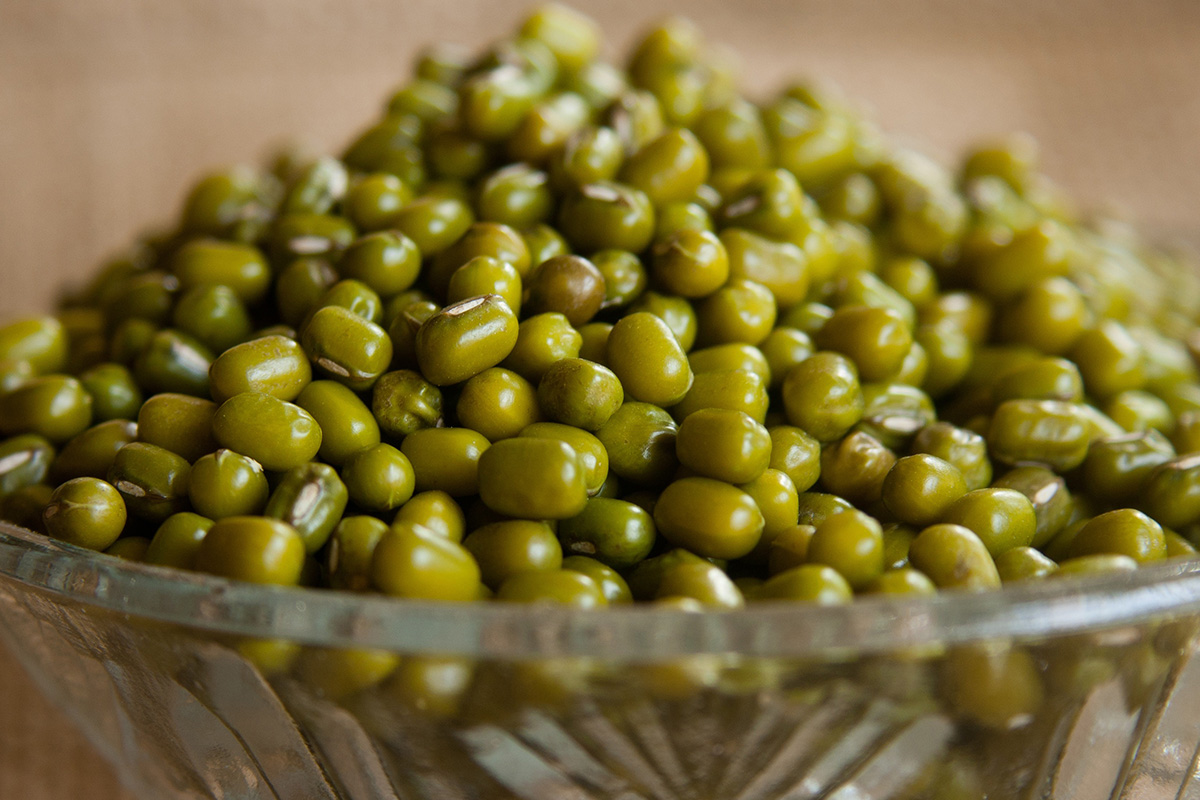
Per 100g (cooked):
Kcal: 105
Protein: 7 g
Carbohydrate: 19 g
Dietary fiber: 8 g
Fat: 0,4 g
Mung beans have recently gained popularity in western countries, although they have been cultivated in India since ancient times. Besides protein, they are rich in fiber, meaning they will keep you full for a long time.
Mung beans are beneficial for your health. Several compounds found in mung beans demonstrate antioxidant effects, they may help lower blood glucose level and blood pressure. So, mung beans are rich in protein, healthy and taste good - do you need any more reasons to make them part of your diet?
5. Almonds
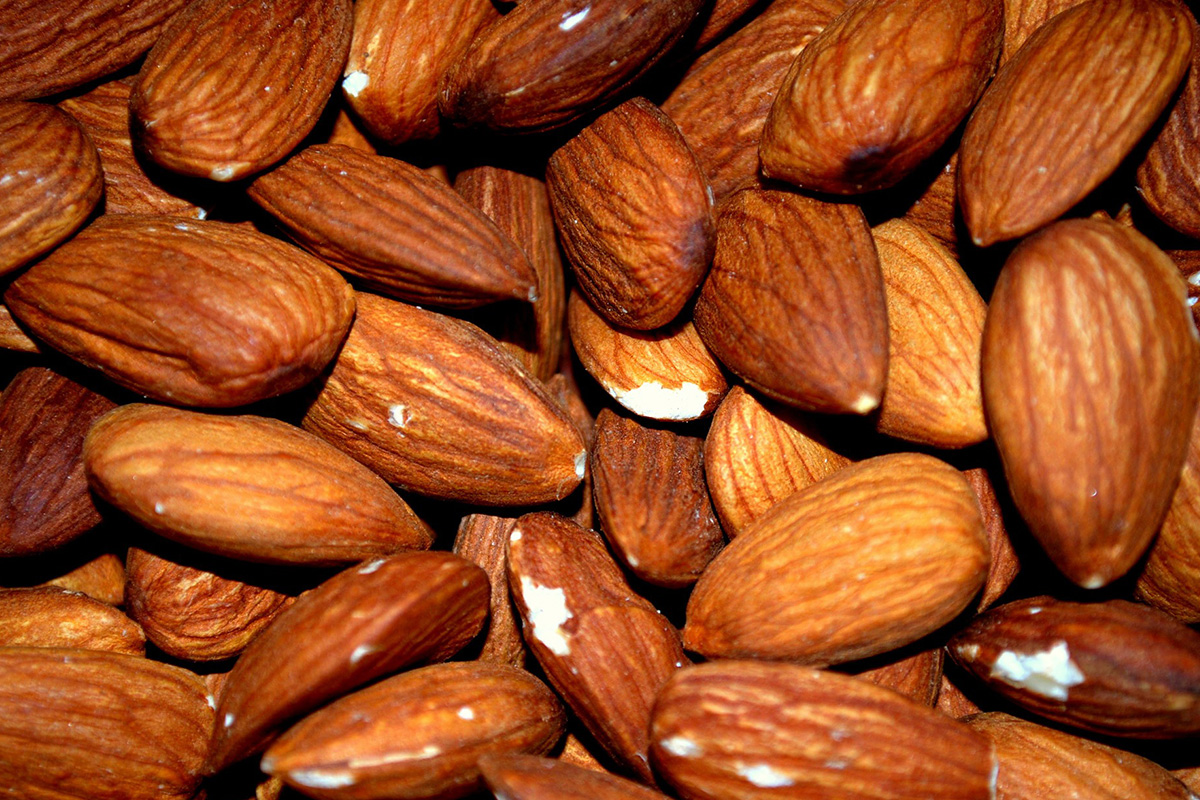
Per 100g:
Kcal: 579
Protein: 21 g
Carbohydrate: 22 g
Dietary fiber: 13 g
Fat: 50 g
Almonds contain all the essential and non-essential amino acids, and they have more nutrients than any other nut. They are rich in vitamin E, calcium, and iron. Although they are high in fat, most of it is monounsaturated fat which has cardio-protective properties.
However, almonds are high in calories, so be careful when you are trying to lose weight. Keep in mind that the recommended daily intake of nuts is 40g (231 kcal).
6. Hemp seeds
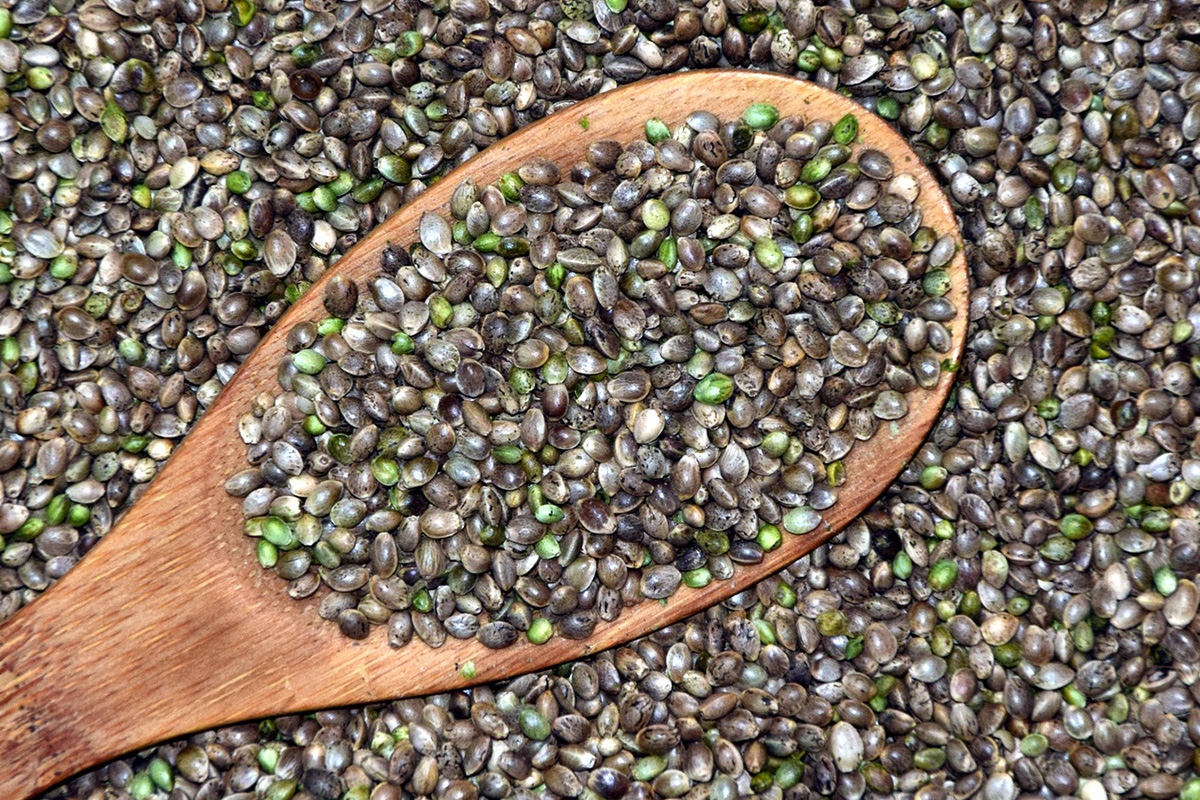
Per 100g:
Kcal: 555
Protein: 31,5 g
Carbohydrate: 8,5 g
Dietary fiber: 4 g
Fat: 49 g
Hemp seeds are a complete source of protein, as they contain all nine essential amino acids. One serving of hemp seeds (3 tablespoons, approximately 30g) contains 9.5 grams of protein. They are rich in vitamin E, magnesium, phosphorous, potassium, iron, zinc and B vitamins. Also, they have an excellent balance of omega 3 to omega 6 fatty acids. They really earn the title of superfood.
You can increase your protein intake by adding hemp seeds in a smoothie, sprinkling them on oatmeal or quinoa porridge, ground them and use them as a flour substitute, or sprinkling them over a salad.
7. Seitan
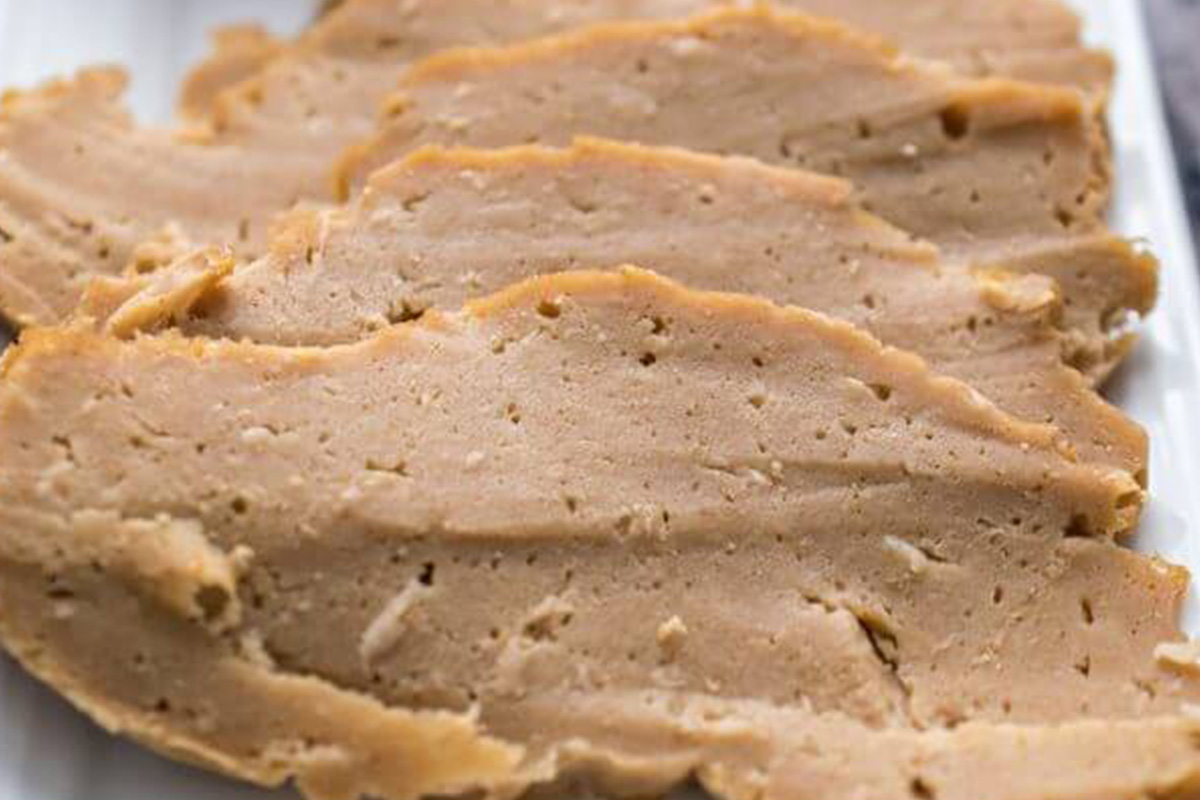
Per 100g:
Kcal: 370
Protein: 75 g
Carbohydrate: 14 g
Dietary fiber: 0,6 g
Fat: 2 g
Seitan is a vegan meat substitute made entirely our of hydrated gluten, the main protein found in wheat. Although debates have risen over the past few years on whether or not gluten is healthy, seitan still earns the right to be mentioned as a great protein source.
However, people with celiac disease and gluten sensitivity must not consume seitan. Those who are not sensitive to gluten should consume seitan moderately, since it is, after all, highly processed food.
Seitan is known as the best meat substitute for vegans since it’s easy to work with and texture resembles meat texture. You can use it as a substitute for virtually any meat meal, including ground beef!
8. Tofu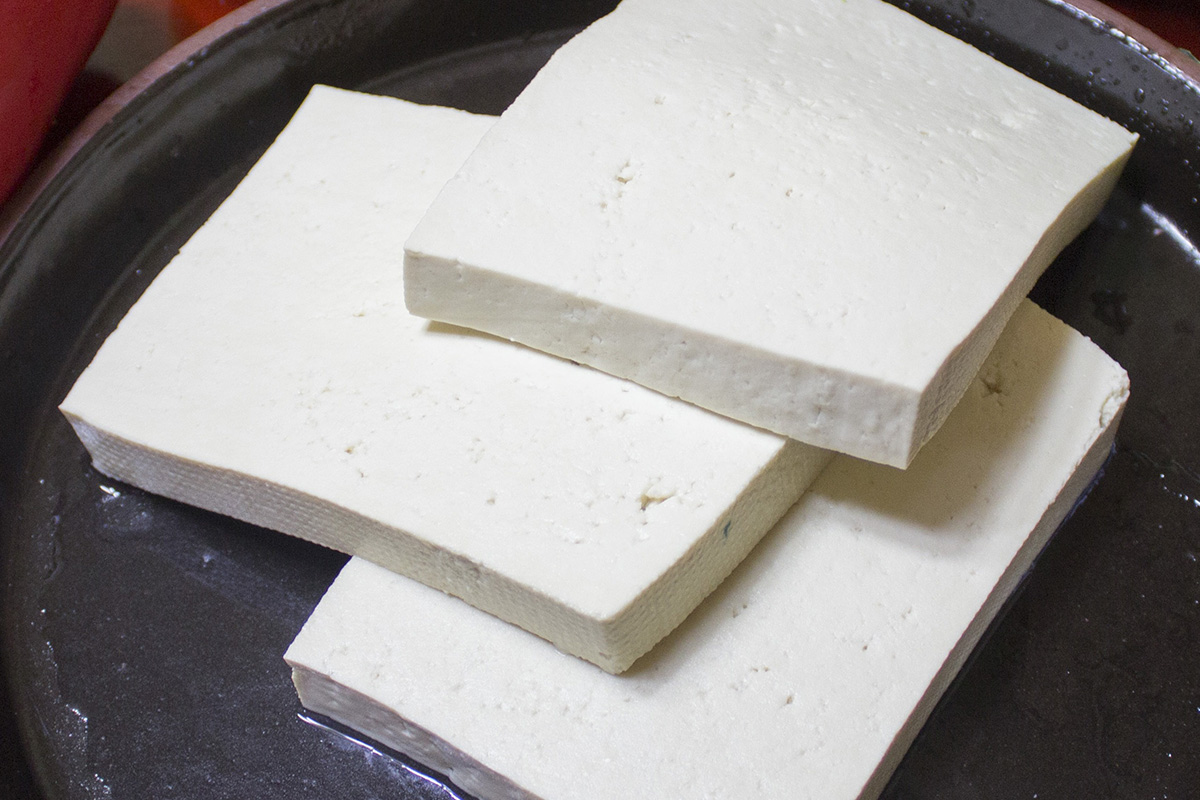
Per 100g:
Kcal: 76
Protein: 8 g
Carbohydrate: 2 g
Dietary fiber: 0,3 g
Fat: 5 g
Tofu is the most popular vegan substitute for meat. Just like seitan is great for vegans with a soy allergy, tofu is great for vegans with celiac disease and gluten sensitivity. Tofu works great as a meat substitute and can be used in various meals. Plus, tofu is really low in calories, so it’s a great choice if you are trying to lose weight.
Keep in mind that tofu is also a processed food, so it’s better to use plain tofu than products made of tofu (e.g. tofu sausages) that have undergone even more processing.
Takeaway
Although a lot of people think that not eating animal products automatically causes a lack of protein intake, that is not the case. With a balanced diet, you can consume a sufficient amount of protein. These 8 foods are just the basic protein sources for vegans - there are many more.
And if you are looking for efficient workout plans to build muscle while on a vegan diet, Madbarz Premium is just a thing for you! In the variety of workout plans, you will definitely find something that suits your needs!

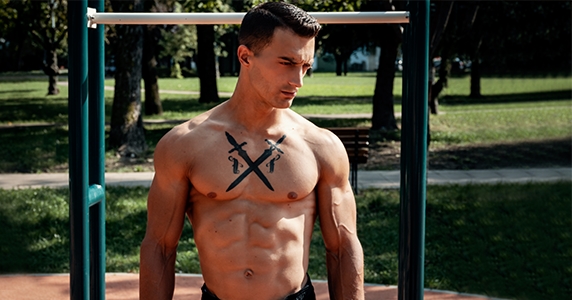
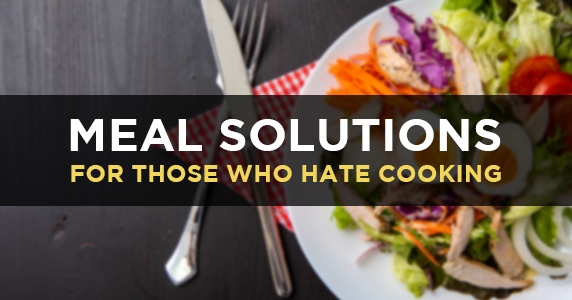
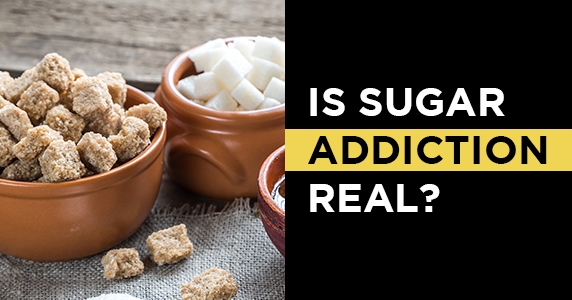
Post a comment